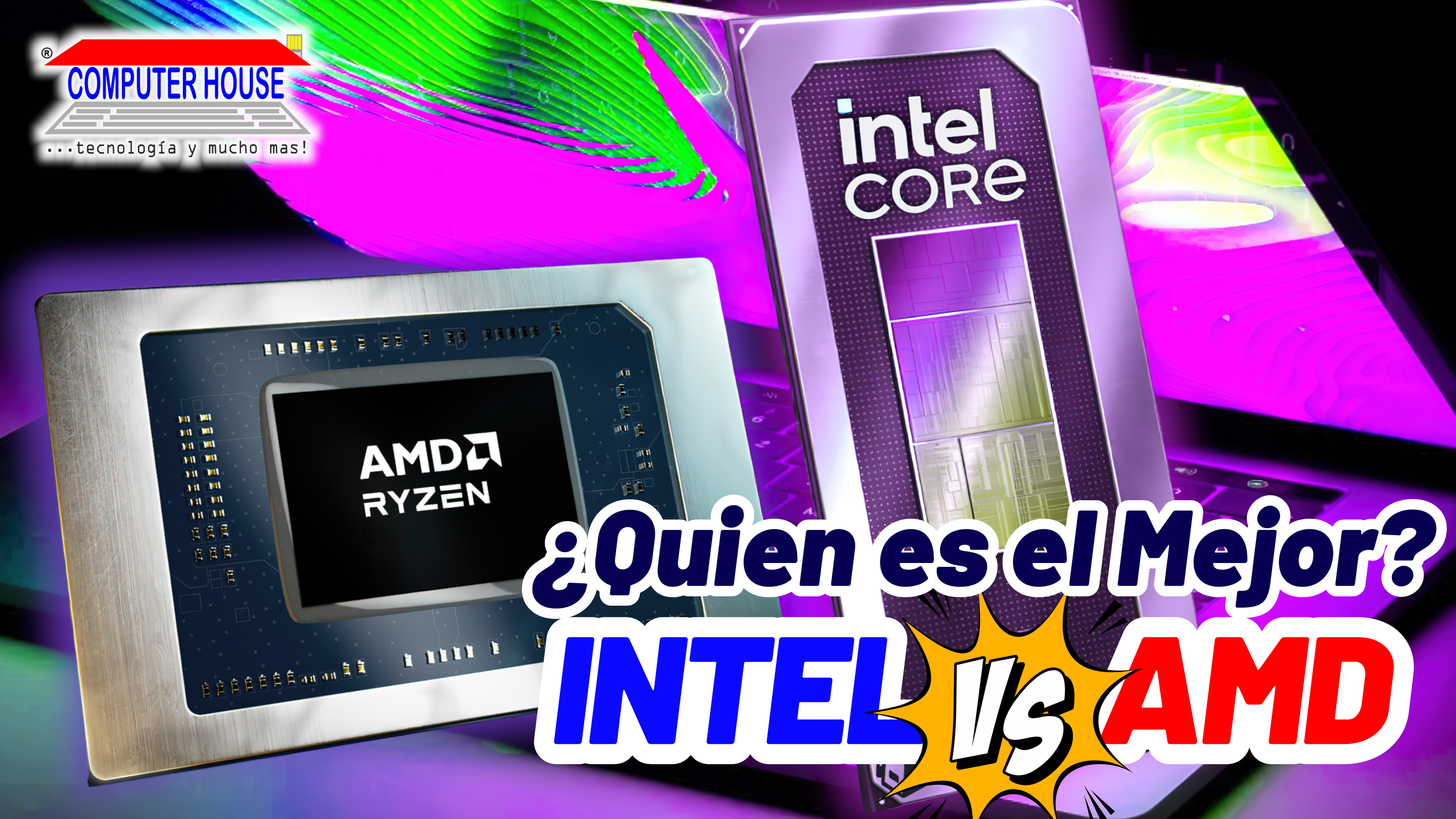INTEL Core vs AMD Ryzen, which processor will be the best in 2024?

INTEL VS AMD Which is the Best Option for your Computer?
The eternal debate between AMD and Intel persists, and choosing the right processor for your computer can be challenging. Although AMD's latest Zen-based processor stands out as the most powerful consumer chip, Intel CPUs offer optimal performance at a more affordable price. In terms of total power, AMD may lead with its Zen 4-based Ryzen 9 7950X3D, but the value for money of 13th generation Intel CPUs, such as the Core i7-13700K, presents itself as a more balanced option for most. of the users.
AMD's Zen 4 architecture, 5nm cores, and added features like PCIe 5.0 and DDR5 have redefined power and performance expectations in the market. However, its high price may not be justified for most users unless advanced 3D rendering software is used.
In terms of balance between price and performance, the AMD Ryzen 7 7700X presents itself as a more affordable option. Although it offers a good balance, compared to the Intel Core i7-12700K in the lower price range, and with the launch of the Intel Core i7-13700K, which has 16 cores and up to 24 threads, Intel is looking to consolidate its position in the mid-range market.
Although AMD seems to lead in the title of best CPU today, it does not necessarily mean that it is the optimal choice in all cases. For everyday tasks that don't require extreme performance, such as using advanced 3D rendering software, the difference may not be significant. Fierce competition between both brands has led to rapid improvements in recent years, with Intel increasing the number of cores and AMD making notable advances in transistor technology.
The history of AMD and Intel goes back to their origins at Fairchild Semiconductor, but the main difference lies in revenue streams and R&D budget, where Intel has a significant advantage. Over the decades, Intel has led the CPU market, although it faced accusations of monopolization. AMD, despite the difficulties, innovated and competed with a focus on affordable chips and scalable design.
AMD's Zen architecture, introduced in 2017, radically changed market dynamics, threatening Intel's supremacy. While Intel shines in instructions per clock (IPC) and single-threaded clock speed, AMD's chips, with more cores and multi-thread capabilities, offer greater efficiency and clock speeds.
In terms of gaming performance, Intel CPUs stand out with better performance and value for gamers, especially in complex AI calculations in video games. However, AMD CPUs are more flexible for overclocking, providing an excellent option for those looking to boost their CPU to run demanding games.
When it comes to office work, productivity, and content creation, the advantage is often in the number of cores. AMD stands out in energy efficiency, being a suitable option for intensive workloads. In terms of prices, both brands are practically on par, but AMD stands out in compatibility between generations, despite a higher cost.
The price comparison shows that, although both brands are competitive, the choice between Intel and AMD will depend on specific needs and preferences. Intel remains the leader in laptop CPUs, but AMD has begun to challenge that supremacy. Both brands offer options for various users, from mid-level to high performance, with the final choice depending on individual needs.
In short, Intel continues to lead the CPU market, offering an optimal balance between price and performance. However, AMD has become more competitive, especially with its Ryzen 9 chip in the more powerful consumer segment. Choosing between the two will depend on your specific needs and preferences, as continued competition has driven the production of innovative hardware by both companies.
Dejar un comentario:
Ten en cuenta que los comentarios deben aprobarse antes de que se publiquen.








